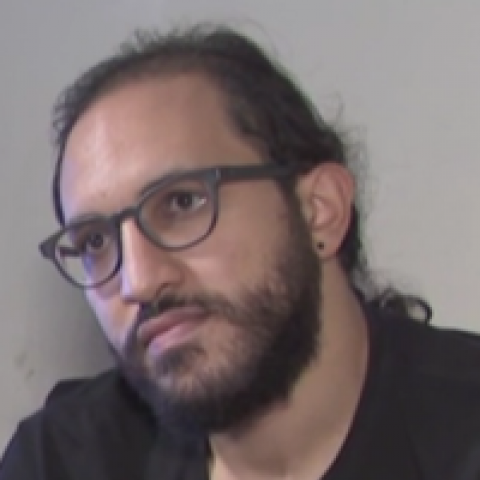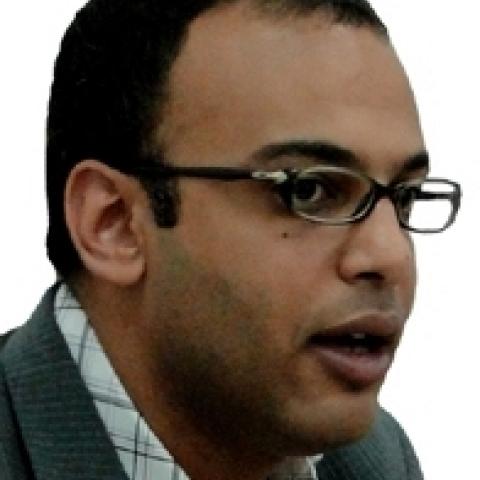EIPR senior researcher Sarah Carr reports from the Giza court.
Malek Adly, a lawyer with the Hisham Mubarak Law Center, is waiting inside the secretariat of the South Giza Chief Prosecutor for a chance to see the Chief Prosecutor. He is to launch an inquiry into why last month a traffic policeman shot Tuk-Tuk driver Mahmoud Sobhy twice and why Sobhy was then himself taken from hospital to a police station cell and charged with assault.
EIPR senior researcher Sarah Carr was in Imbaba last night and wrote the following account of the violent Muslim-Christian clashes that left at least 12 dead and over 200 injured.
The Mar Mina Church is located on Loqsor St, a long unmade road from that branch off the warren of small alleys that make up Imbaba.
Taxi drivers will not risk damaging their chassis here and instead Toctocs – motorised rickshaws – transport passengers over the bumps and potholes.
When I arrived (late) at the Doctors’ Syndicate general assembly on Friday it was in uproar.
Syndicate head Dr Hamdy El-Sayyed was conspicuously and predictably absent from the podium. After losing his seat in the 2010 parliamentary elections (a seat he held for three parliamentary terms) El-Sayyed was then subjected to the indignity of being booted out of his Syndicate headquarters office by doctors demanding that he step down.
An Egyptian human rights worker takes a walk inside the abandoned State Security Investigations headquarters.
By Sarah Carr
I used to love entering abandoned buildings as a kid, for the adventure and the thrill of finding belongings left behind, clues to the untold stories silenced by the walls. Yesterday I entered an abandoned building that contains a million stories, all of them of deceit, pain and power.
Two weeks before he accepted the post of Minister of Foreign Affairs in the transitional government, Minister Nabil el-Araby wrote an article in the Al Shourouk daily newspaper outlining necessary changes that are needed for the foreign policy of a post-revolutionary Egypt. Below is an unofficial English translation of the article prepared by the Egyptian Initiative for Personal Rights. The original article (in Arabic) could be found here.
An Egyptian human rights worker takes a walk inside the abandoned State Security Investigations headquarters.
I used to love entering abandoned buildings as a kid, for the adventure and the thrill of finding belongings left behind, clues to the untold stories silenced by the walls. Yesterday I entered an abandoned building that contains a million stories, all of them of deceit, pain and power.
Communications and online platforms have played very important role during the Egyptian Revolution between all entities and individuals.
The invitation to demonstration started online through Facebook events and Twitter using the hash-tag #Jan25, to demonstrate during the National Police Day 25 January 2011 mainly against corruption, unemployment and torture in Egypt. The invitation spread very widely among the Egyptian netizens and many political groups and parities adopted the invitation and it was spread offline.
As Egyptian citizens and human rights defenders, we have been on the streets here, including in Tahrir Square, since Jan. 25 to demand dignity and freedom for all Egyptians. There is nothing we want more than an immediate end to the Mubarak era, which has been marred by repression, abuse and injustice. We are heartened by the international community's shift from demanding "restraint" and "responsiveness" to echoing our call for Hosni Mubarak to step down and for an immediate transition toward democracy.





